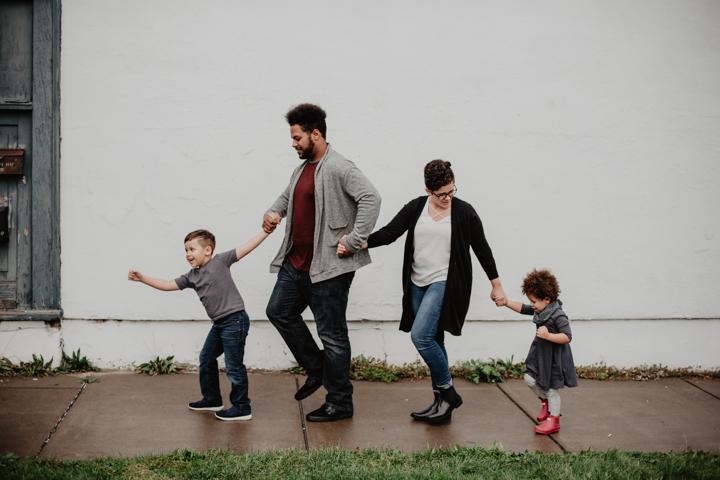
Estate planning is a topic that many people prefer to avoid, especially when it involves contemplating scenarios where they are no longer around to care for their loved ones. However, for parents, creating a will is an essential step in ensuring the well-being of their children. This is why one of the most critical aspects of a will is appointing a guardian for your children.
What is a Guardian?
A guardian is an individual or a couple designated to take care of your children if both parents pass away. The role can be divided into two: a guardian to manage the child's assets and a custodian to manage their physical custody. However, most people opt for the same individual or couple to handle both responsibilities.
Why Do You Need a Guardian?
No one likes to ponder their mortality, especially when young children are involved. However, life is unpredictable, and it's crucial to have a plan in place for your children's care. A will ensures that such a plan exists, including appointing a guardian. If you don't have a will or fail to name a guardian, the courts will appoint someone, possibly someone you wouldn't have chosen.
Who Can Be Named as Guardians and Custodians for My Kids in a Will?
When it comes to naming guardians and custodians for your children in your will, the options may seem endless, but there are important legal and practical considerations to keep in mind. Here's a breakdown of who can be named and what you should consider for each category:
Family Members
Pros: Family members often share your values and have a deep emotional connection with your children. They are usually the first choice for many parents.
Cons: Family dynamics can be complicated. Also, consider the age and health of family members.
Friends
Pros: Close friends can often be like family and may share your values and parenting styles.
Cons: Geographic location can be a challenge. If your close friends live far away, this could mean uprooting your children from their current environment.
Professional Guardians
Pros: These are individuals who are trained and certified to act as guardians. They are an option if you have no suitable personal connections.
Cons: This is often a last resort option and can be costly. There's also the lack of a personal connection with your children.
Co-Guardians
Pros: Naming two people can divide the responsibility and provide a more robust support system for your children.
Cons: Co-guardians must be able to work well together and be willing to take on the role jointly. Legal complications can also arise if one guardian is deemed unfit.
Legal Requirements to Name Someone as Guardians and Custodians
Different jurisdictions have various legal requirements for who can be named a guardian or custodian. Generally, the person must be:
- A legal adult (usually 18 or older)
- Mentally competent
- Willing to accept the responsibility
How to Choose a Guardian: A Step-by-Step Guide
Choosing a guardian is a multi-step process that involves careful consideration and discussion with your partner. Here are some steps to guide you:
- Discuss Values: The first step is to discuss your values and what you want for your children's upbringing. Consider qualities like patience, kindness, and the importance of education. Make a list of these values to guide your decision-making process.
- Identify Candidates: After establishing your values, identify individuals who align with them. This could be family members or close friends. Make a list of potential candidates.
- Ask Questions: Evaluate potential guardians based on their life stage, financial stability, and willingness to take on the role. Questions to consider include:
- Are they financially stable?
- Do they share your values?
- Are they willing and able to take on the responsibility?
- Consult Your Partner: If you have a partner, compare your lists and come to a mutual decision. This is often the most challenging part of the process, but it's crucial for both parents to agree on a suitable guardian.
- Talk to Potential Guardians: Before finalizing your choice, speak with the individuals to ensure they are willing to take on this responsibility. This conversation should be in-depth and allow them to ask any questions they may have.
- Formalize in Your Will: Once you've made your decision, it's crucial to formalize it in your will. This ensures that there is legal documentation supporting your choice.
Common Mistakes to Avoid
- Not Discussing with Your Partner: If both parents are alive, it's essential that both agree on the chosen guardian.
- Ignoring Financial Stability: While love and care are crucial, financial stability is also important. The guardian will be responsible for the child's upbringing, which includes financial obligations.
- Not Updating the Will: Life circumstances change, and your initial choice for a guardian may no longer be suitable. It's essential to update your will as situations change.
Should I Include a Backup Guardian and Custodian in My Will?
Including substitutes or backups will enhance the certainty of your plan. There is a possibility that your first choice may decline or be unable to fulfill the role for various reasons, hence the significance of having a second option.
Do I need to Allocate Funds to My Custodian for The Purpose of My Child's Care?
While it's an option to designate funds specifically for the custodian, it's not a requirement. Generally, your will stipulates that the custodian can utilize the money held in trust for your children's ongoing needs, such as education, food, and shelter. Additionally, your executor will oversee the custodian's requests for funds to ensure they are in accordance with the instructions outlined in your will.
Appointing a guardian for your children is one of the most important decisions you'll make when creating a will. It's a decision that requires thoughtful consideration and open discussion with your partner and potential guardians. By taking the time to go through this process, you can ensure that your children will be in the best possible hands should the unthinkable happen.
